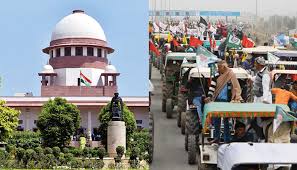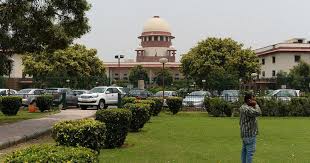National
Drug pricing policy pro-pharmaceutical firms, not pro-poor: SC

New Delhi: The Supreme Court Wednesday asked NGO All India Drug Action Network to make a representation to the central government pointing out its objections to the National Pharmaceutical Pricing Policy 2013 providing controlled prices of 348 drugs as it observed the policy seems to be pro-pharmaceutical companies and not pro-poor.
Asking the petitioner to make a representation to the health ministry and the department of pharmaceuticals, a bench of Justice T.S.Thakur, Justice V.Gopala Gowda and Justice R. Banumathi observed: “What kind of control it is. It (drug price) has no co-relation with actual production cost. You are not being pro-poor but pro-pharmaceutical companies.”
Observing that there was conflict in the policy which on one hand says that it aims to make available affordable medicines to the people and on the other, talks of securing profits for the pharmaceutical companies for their growth, the court asked the NGO to make representation within six weeks and asked the government to respond to the same in six months’ time thereafter.
Noting that there was a huge variance in the prices of the drugs being sold by the pharmaceutical companies to Tamil Nadu, Kerala and Rajasthan than those fixed under the control order, the court observed that the “pharmaceutical companies were already charging 5,000 times of the production cost and then you are taking the average of them and fixing under the drug price control order. This is legitimising the profiteering”.
The court also noted the NGO’s submission that prices fixed under the price control order were higher than what was being charged by the market leader in pharmaceutical sector.
Saying that government was open to consider the representation, Additional Solicitor General Pinki Anand, appearing for the government, said: “All I am saying that provinces in India are much lower than those prevailing in other countries.”
“We will have a look to add some more” drugs under the price control order, she said.
The court noted that the government was buying drugs at a price many more times than what Tamil Nadu was paying and described the situation as “absurd”.
Appearing for the NGO, senior counsel Colin Gonsalves told the court that besides institutionalising the “super profits” in the guise of drugs price control order, a large number of drugs that are prescribed under various national health projects to fight malaria, tuberculosis and other diseases are not included in the order.
He said that similarly the medicines for diabetes and hypertensions including lifesaving drugs including that of cancer don’t form part of the drug price control order.
National
Foodman Vishal Singh Honored for Hunger Free World Mission in Bangkok

Lucknow: Vishal Singh, a renowned social worker from Lucknow, also known as Foodman, has once again made India proud. He was honored by the Happy Hands Gloves Cooperative Limited Company in Korathai, Thailand, for his work with the Hunger Free World Mission.
The Hunger Free World Mission’s meeting was held in Korathai, Thailand, under Vishal Singh’s leadership. Representatives from several countries, including Mr. Raja Dwivedi (Managing Director of Happy Hands Gloves Limited), Thailand Coordinator Mr. Raja Mishra, and member Mr. Varun Singh, attended the event.

Under Vishal Singh’s leadership, the attendees took a pledge to work together toward creating a hunger-free world.
Speaking on the occasion, Vishal Singh explained that the main goal of the Hunger Free World Mission is social participation. He said the mission is not just about feeding people but also about meeting other basic needs of those who are struggling. The mission focuses on helping families of terminally ill patients in hospitals by providing food and shelter. It also works to fulfill essential needs like education, jobs, and care for the elderly.
For the last 16 years, the Vijay Sri Foundation has been providing free services, benefiting thousands of people. Vishal Singh highlighted that the mission aims to gain global recognition like other organizations such as WHO, WWF, and Red Cross, which work for social causes.
During this meeting, Vishal Singh was appointed as the Chairman of the Hunger Free World Mission by representatives from various countries. They also discussed holding regular meetings in different countries to push the mission forward.
Business tycoon Dr. Abhishek Verma has also supported this humanitarian mission, vowing to promote the idea of “Seva Parmo Dharma” (Service is the highest duty) worldwide. Vishal Singh praised him, stating that people like Dr .Abhishek Verma inspire others to work for the betterment of society.
Recently, Romania’s Ambassador, Mr . Daniela Sezonov Ţane, invited Vishal Singh to the Romanian Embassy in Delhi, where they discussed the mission in detail. Impressed by his humanitarian work, she honored Vishal Singh and invited him to Romania to take the mission forward .
Food man Vishal Singh has been serving the people of India for the past 16 years. Through the Vijay Sri Foundation, he provides free meals to cancer patients & their families ,shelter, and education for women & children along with running free old-age homes in Lucknow.
In addition to his humanitarian work, Vishal Singh also addresses issues like crime and corruption through his role as Chairman of Seva Path Media and Managing Director of Vijay Sri Foundation.

During the COVID-19 pandemic, Vishal Singh and his team worked tirelessly to provide food and help to the needy, including starving children, elderly citizens, and pregnant women. Despite contracting the virus himself, he continued to assist others after his recovery. He even created a life-saving oxygen regulator using household items, which was praised by doctors both in India and abroad.
In his address at the meeting, Vishal Singh spoke about his mission to create a hunger-free world. He pointed out that India’s large population, along with issues like unemployment and poverty, has caused the country to fall on the Hunger Index. He urged people to contribute just one handful of grains daily to help create a hunger-free world.
He concluded by saying that through social participation, we can empower the people around us, meet their basic needs, and work together to build a stronger, more prosperous, and developed society.





















